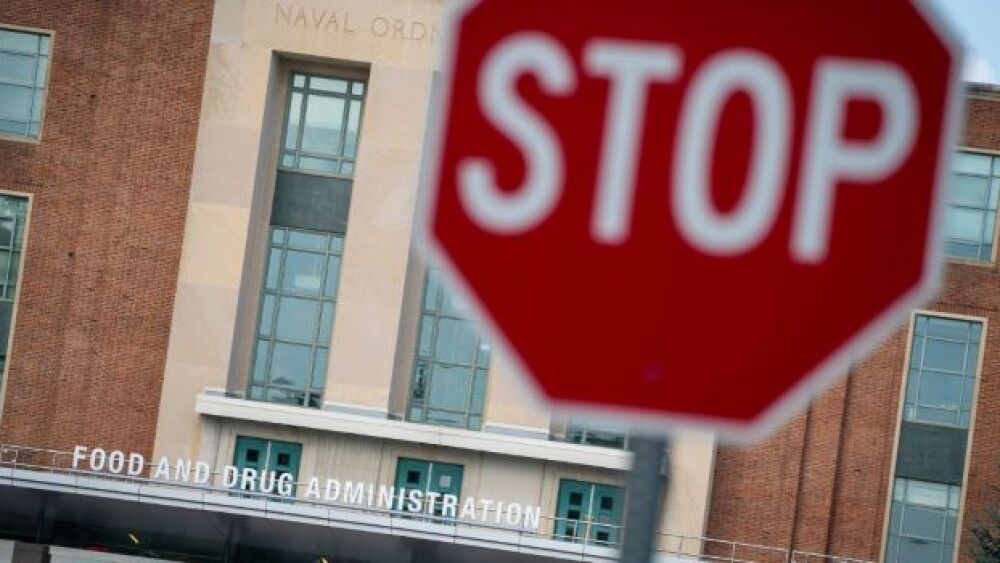The FDA has stated that GSK and Vir’s COVID-19 treatment sotrovimab is no longer authorized to be used for the condition because of its low efficacy against Omicron sub-variant BA.2.
FDA repealed the use of Sotrovimab. (Sarah Silbiger/Getty Images)
On Tuesday, The U.S. Food and Drug Administration stated that GlaxoSmithKline and Vir Biotechnology’s COVID-19 treatment sotrovimab is no longer authorized to be used as a treatment for the disease. The FDA cited low efficacy against emerging Omicron sub-variant BA.2 as the reason behind the move.
GSK and Vir announced in May 2021 that sotrovimab received Emergency Use Authorization (EUA) from the FDA for the treatment of mild to moderate COVID-19 in high-risk adults and pediatric patients. The EUA came after treatment with the therapeutic resulted in an 85% reduction in the risk of hospitalization or death in a Phase III clinical trial. At the time, in vitro data supported that sotrovimab was effective against all known variants of concern.
Sotrovimab was highly anticipated for the treatment of COVID-19, with the U.S. government penning a contract with the two companies for $1 billion for doses of the antibody therapy in November 2021. The U.S. government then bought an additional 600,000 doses in January 2022 to increase nationwide access to sotrovimab.
As the pandemic continued into early 2022, questions arose about sotrovimab’s efficacy against Omicron subvariant BA.2, which the Centers for Disease Control and Prevention now estimates accounts for 72.2% of all new cases of COVID-19 in the U.S. Concerns began rising in February, with researchers from Columbia University sharing data indicating that sotrovimab is not effective at neutralizing BA.2. Similar results were shared by researchers from Japan that reviewed multiple antiviral agents’ efficacy against BA.2.
The FDA took notice of such data, and in late February, the regulatory authorization limited the use of sotrovimab. The EUA was revised to clarify that the treatment was not authorized for use in geographic regions where the infection was likely to be caused by a variant not susceptible to the treatment, such as BA.2.
The limitation was then updated again in late March to reflect that sotrovimab was no longer authorized for use in several states and territories, with new states and territories being added just days later. Finally, on April 5, the FDA completely pulled the therapeutic’s authorization to treat COVID-19 in any U.S. region as Omicron BA.2 continues to storm through.
GSK and Vir both maintain that the treatment is effective against BA.2 despite disagreement from the scientific community. In response to an earlier communication from the FDA stating limited use of sotrovimab, GSK and Vir planned to file with the Securities and Exchange Commission and provide a package of data that supports the use of a higher dose of the drug for the Omicron BA.2 sub-variant. Additionally, the companies plan to submit an application for full approval of the drug in the second half of 2022 and will begin late-stage clinical trials to assess if sotrovimab can prevent symptomatic COVID-19 infection in immunocompromised patients.
Researchers have found that none of the currently approved or authorized treatments for COVID-19 are effective against BA.2, representing an uphill battle for scientists and biopharma companies desperately trying to stay ahead of the quickly mutating virus. Eli Lilly is currently ahead of the curve with its antibody drug bebtelovimab receiving EUA from the FDA in February after data supported its efficacy against BA.2.





